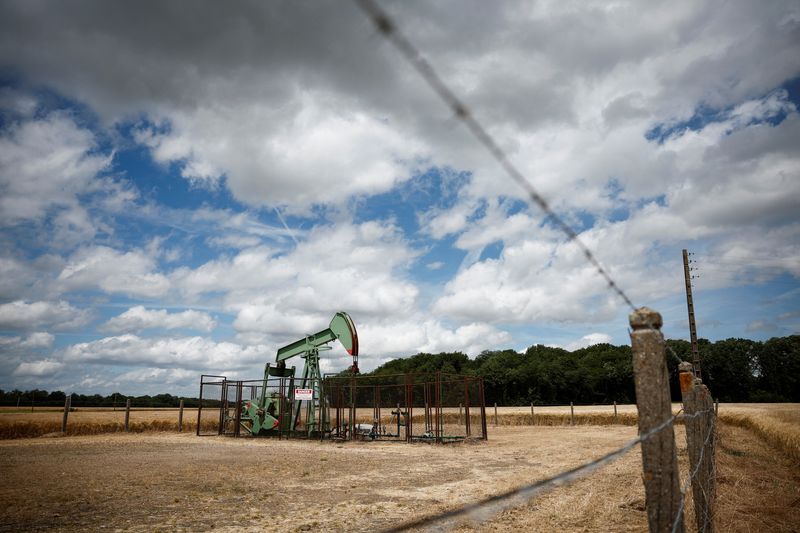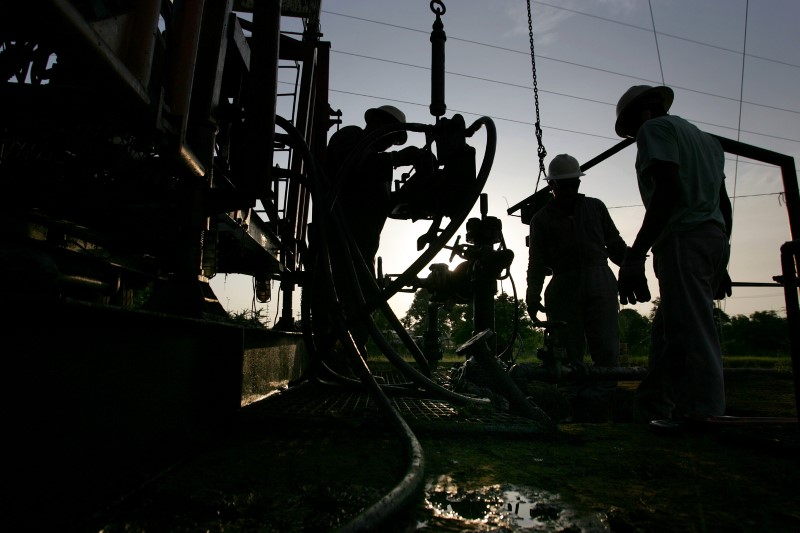By Shariq Khan
NEW YORK (Reuters) – Oil prices fell on Tuesday after U.S. President Donald Trump declared a national energy emergency on his first day in office, raising concerns about higher U.S. production in a market widely expected to see a will be oversupplied.
futures fell 86 cents, or 1.1%, to $79.29 a barrel. U.S. West Texas Intermediate crude oil (WTI) futures for February fell $1.99, or 2.6%, to $75.89 in the latest trading session.
The more actively traded March WTI contract fell 2% to settle at $75.83 per barrel. There was no settlement in the US market on Monday due to a holiday.
‘Ultimately there is no shortage of oil’ Mizuho (NYSE:) analyst Robert Yawger said, noting that U.S. oil production is at record levels and the OPEC+ producer group still has about 5.86 million barrels per day of production curtailed.
“What there is a shortage of is the question,” Yawger said. “If the refinery doesn’t have to make more fuel, they won’t buy the crude.”
The oil market is expected to be oversupplied this year after weak economic activity and energy transition efforts weighed heavily on demand in the top consuming countries, the United States and China.
The US Energy Information Administration (EIA) reiterated its expectations on Tuesday that oil prices will fall both this year and next.
“Strong global growth in oil and other liquids production and slower demand growth are putting downward pressure on prices,” EIA economists wrote.
Trump also said he is considering imposing 25% tariffs on imports from Canada and Mexico starting Feb. 1, instead of on his first day in office as previously promised.
The slowdown helped ease concerns about an immediate market tightening among U.S. refiners, many of which are focused on processing the type of product supplied by these countries, Mizuho’s Yawger said.
Oil losses were also limited after the US president said his government would “probably” stop buying oil from Venezuela. The US is the second largest buyer of Venezuelan oil after China.
Trump also promised to replenish strategic reserves, although analysts questioned whether this would bring about any change in oil demand.

“(It) probably won’t change anything… Biden was already topping up the US SPR at a maximum rate of 3 (million barrels) per month,” wrote SEB Research analyst Bjarne Schieldrop, referring to the Strategic Petroleum Reserve, the crude stockpile of the country. , designed as a buffer against supply shocks.
Also weighing on prices on Tuesday was the possible end of shipping disruption in the Red Sea. Yemen’s Houthis said Monday they will limit their attacks on commercial ships to those affiliated with Israel, provided the ceasefire in Gaza is fully implemented.


